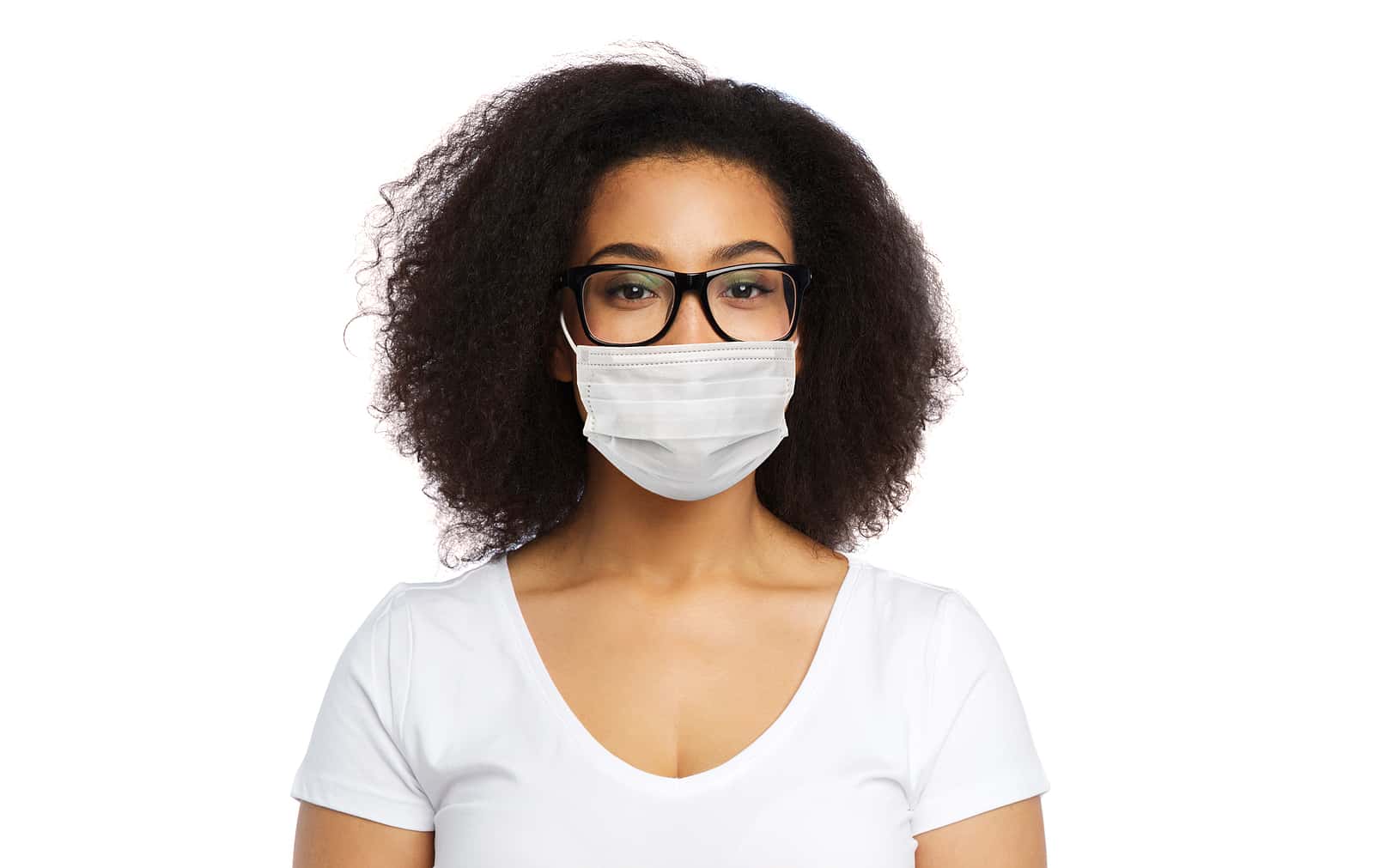
Can you catch COVID-19 through your eyes? If so, would eyeglasses help protect you?
How Would Eyeglasses Help?
A Report from Northern India:
We don’t yet have a good answer to that question, but a couple of small studies suggest that they do. Recently, researchers in India reported that people who wear glasses have some measure of protection against infection with COVID-19 (MedRxiv, Feb. 13, 2021). The researchers asked 304 people hospitalized with the infection whether they wore glasses. Out of this group of patients, 58 said they were long-time glasses-wearers. According to the investigators, people who use spectacles at least 8 hours a day appear to be two to three times less likely to contract the coronavirus.
A Report from Wuhan, China:
This finding agrees with an earlier report from Wuhan, China,published in JAMA Ophthalmology (online Sept. 16, 2020). Researchers in China reported they had far fewer glasses wearers among the COVID-19 patients in their hospital than they would expect. The proportion of people wearing eyeglasses in the general population of Hubei province was about five times higher. As a result, the authors propose that eyeglasses might be protective against the coronavirus.
Could Glasses Deflect Viral Particles?
SARS-CoV-2 moves through the air from person to person. As a result, if eyeglasses can deflect virus-laden particles, even partially, they might cut the risk of transmission.
Do Glasses Wearers Rub Their Eyes Less?
Another explanation may be that people who wear glasses might be less likely to rub their eyes. (We are not aware of any evidence supporting this possibility.) If so, eyes behind spectacles would not be exposed to virus on fingers that hadn’t been washed. That too could help protect from infection.
We do know, for example, that goggles or face shields are an important part of the personal protective equipment for health care providers. That doesn’t mean a plastic face shield by itself will protect against COVID-19. Masks are still essential in preventing aerosol particles from getting into the nose and mouth. But face shields and goggles may help protect the eyes much as eyeglasses do.
Both the Indian and the Chinese scientists were studying individuals who wear their glasses most of the day almost every day. So if you have eyeglasses, you may want to add them to your mask as essential equipment whenever you will interact with someone from outside your household.
Citations
- Saxena AK, Sr, "Risk of Corona virus disease 2019 (COVID-19) among spectacles wearing population of Northern India." MedRxiv, Feb. 13, 2021.
- Zeng W et al, "Association of daily wear of eyeglasses with susceptibility to coronavirus disease 2019 infection." JAMA Ophthalmology, online Sept. 16, 2020. DOI: 10.1001/jamaophthalmol.2020.3906

